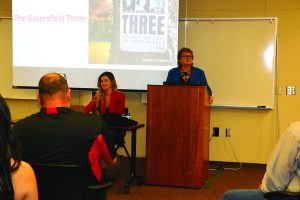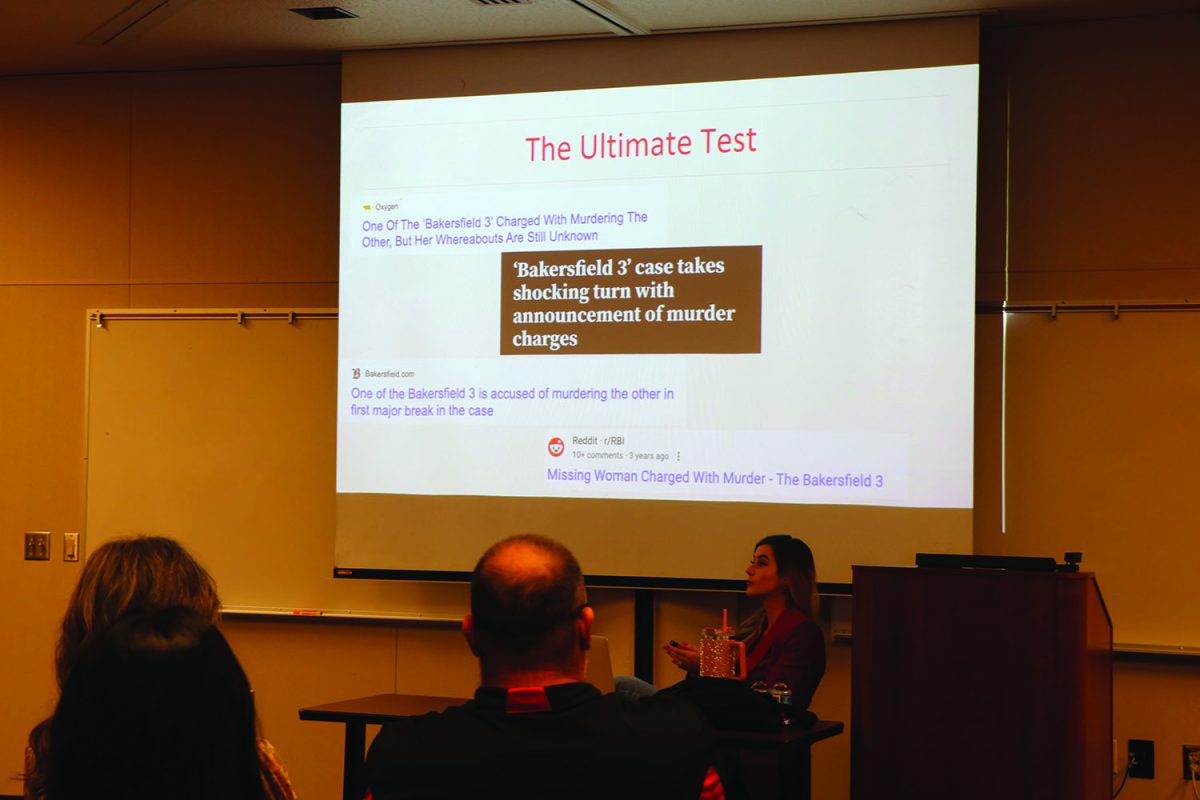“As the three of them sat down at Dy’s dining room table with me, I noticed how fragile they were, trembling voices with what initially felt like a sense of apprehension. But the more we all spoke, I began to see a shift from anguish to a feeling of determination.” An excerpt from Olivia LaVoice’s “The Bakersfield Three” gives insight on the tenderness/severity of the case.
LaVoice came to the Levan Center April 3. to speak to aspiring journalists about her career. The event lasted from 6 to 7:30 p.m. that evening.
“I got my start working with Bakersfield local news in 2015 [for] The Morning Show for KGET.” She said, as she explained how her journey wasn’t as linear as she expected as a young reporter starting out.
She shared how it took her time to gain the position she wanted, just as much as it took time for her to gain the skills necessary to approach delicate topics professionally and the intricacies of dealing with a case involving multiple murders, all while still handling the situation with consideration for the victim’s parents who lent what aid they could to the case as well.
“They have already been through the worst thing, if I’m going to make them sit in front of the camera and relive that, there better be a damn good reason for that.” LaVoice voiced her determination for handling the case.
LaVoice was very open with her audience, welcoming questions as she shared, “Please, do ask questions as you think of them.”
However, upon sharing her story the room was mostly silent, individuals wanted to hear what she had to say and waited until the end to ask questions.
“Was there evidence that they committed murder or assisted murder?”, Christian Zolle, a fellow viewer of the speaker, had asked.
She explains that there were, and that reasonable doubt made the case difficult, as she stated, “Prosecutors will not file anything that they don’t think is a slam dunk.” Stephanie Peters, another individual from the crowd asks, “How much did your story help them?”.

LaVoice said that she was notified that the information she covered was helpful to the victims, but she gave most of the credit to the victims who really wanted to get answers.


